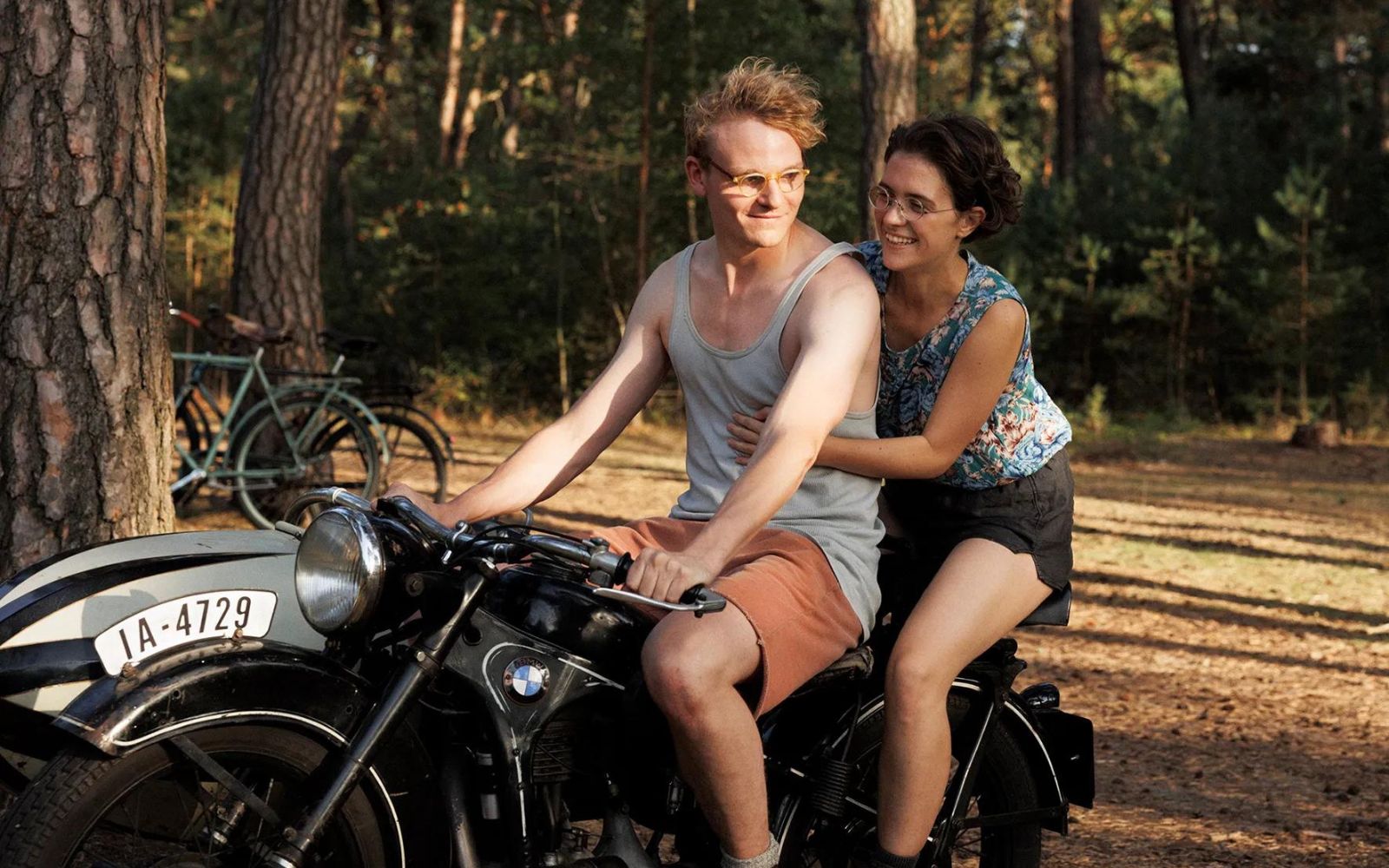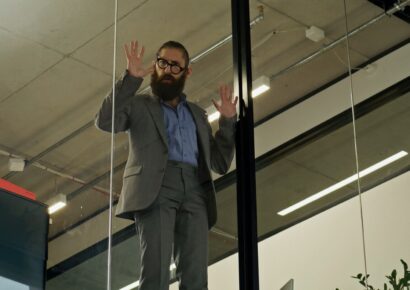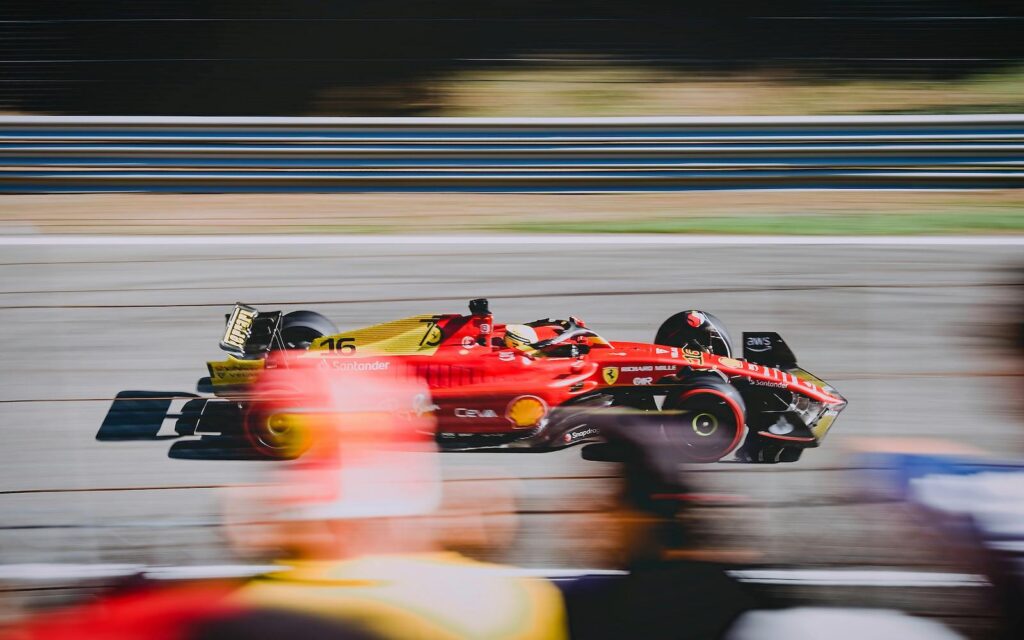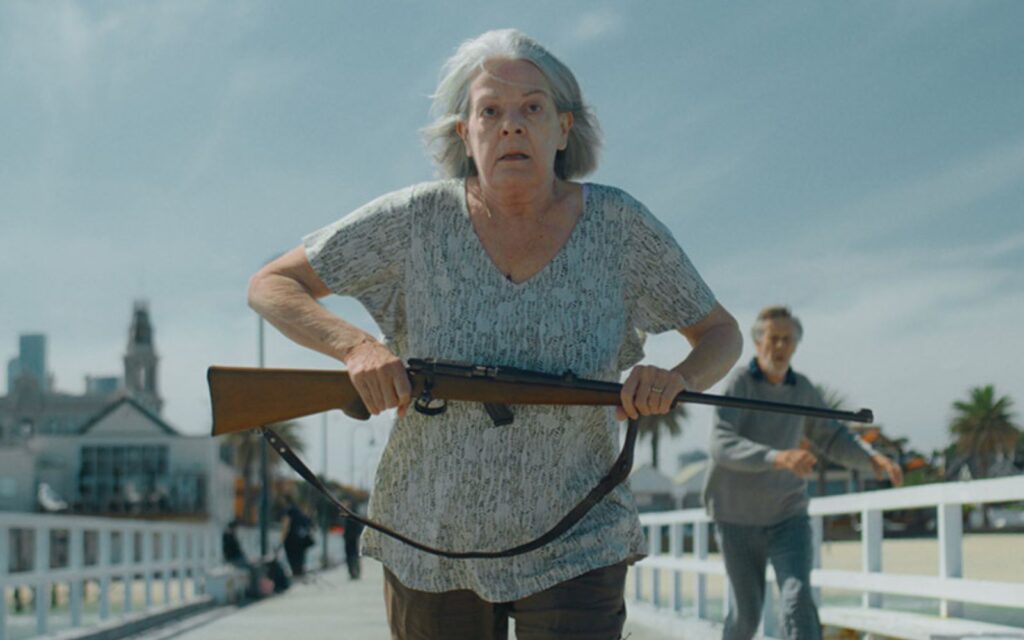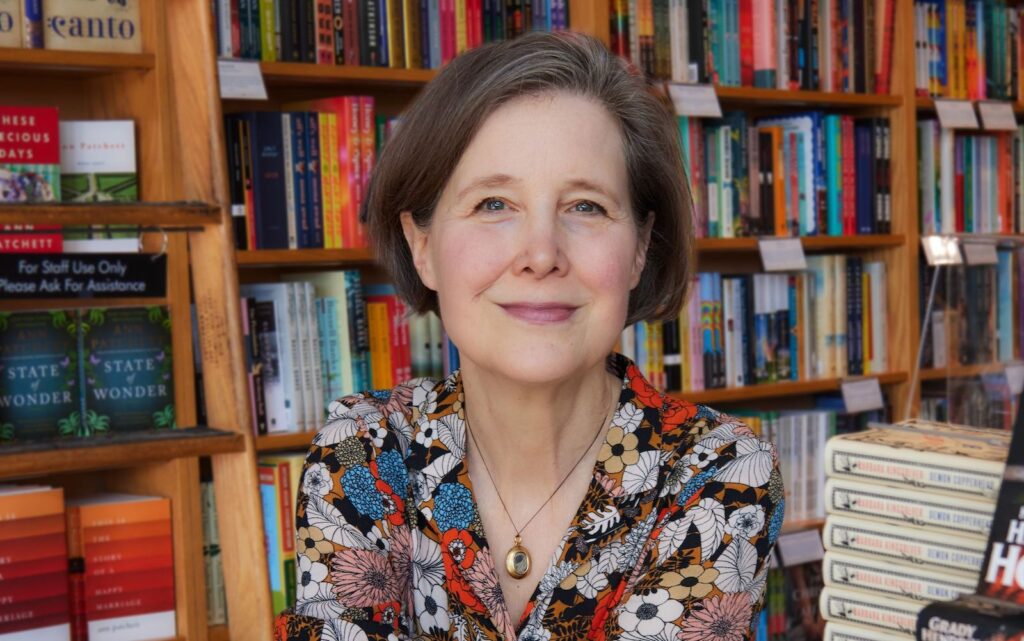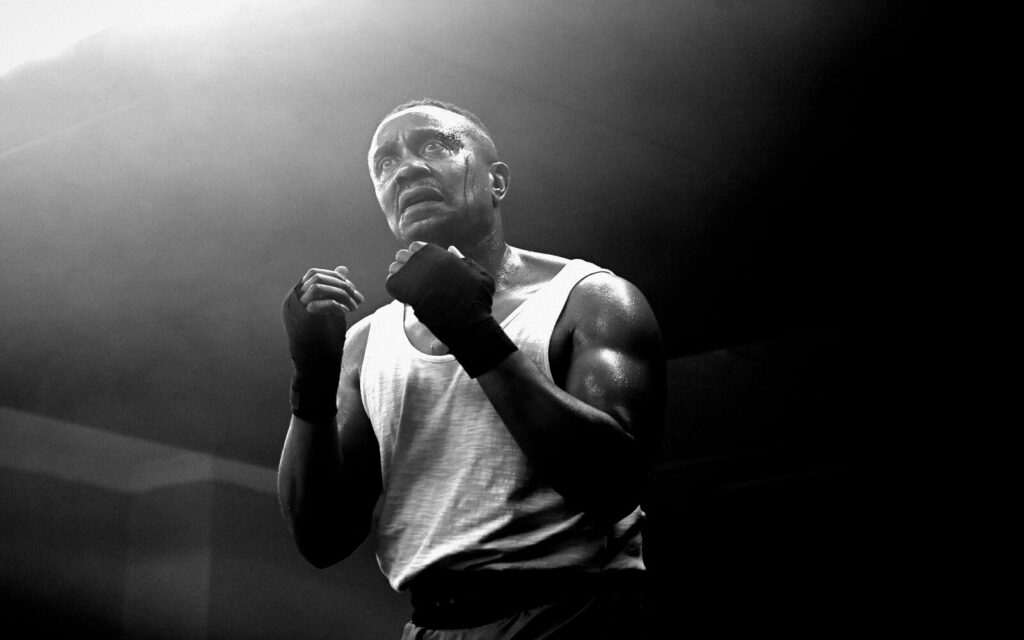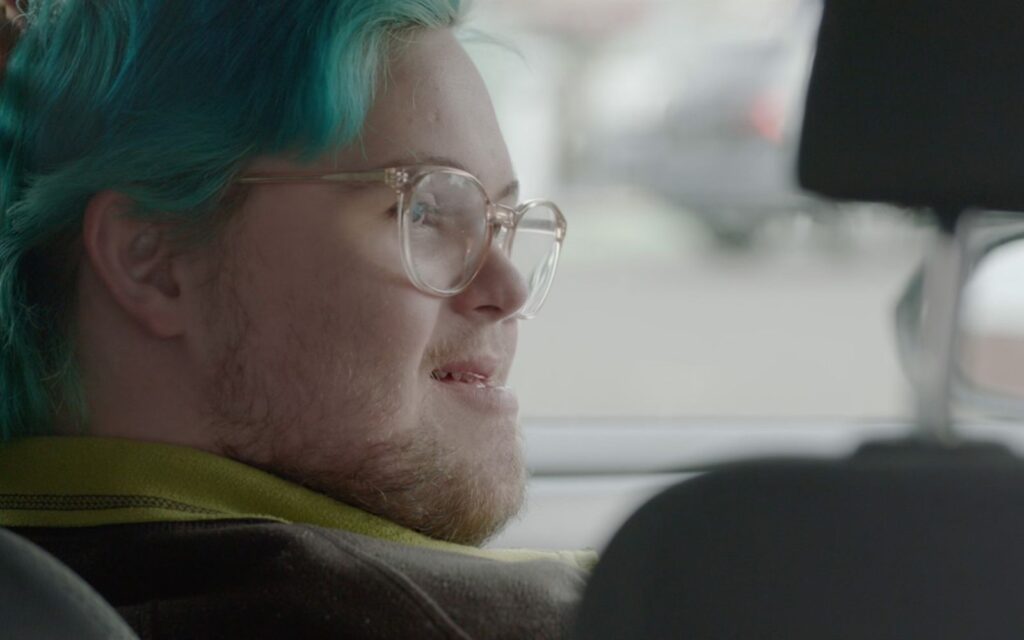The 2024 HSBC German Film Festival in Melbourne is a cinematic extravaganza that brings together the best of contemporary German cinema along with captivating selections from Austria and Switzerland.
This year’s festival, presented by Palace in association with German Films, is a testament to the enduring partnership between these entities, showcasing a rich tapestry of storytelling and cultural exploration.
German Film Festival 2024
- Canberra: 7 May – 29 May
- Sydney: 8 May – 29 May
- Brisbane: 9 May – 29 May
- Melbourne: 10 May – 29 May
- Adelaide: 15 May – 5 Jun
- Byron Bay: 16 May – 5 Jun
- Perth: 16 May – 5 Jun
- Tickets here
Find Melbourne’s latest film, TV, literature and gaming news here.
From Hilde, With Love
From Hilde, With Love takes audiences back to the tumultuous period of World War II, based on a true story and directed by Andreas Dresen. This film, which premiered at Berlinale and received a nomination for the Golden Berlin Bear, offers a moving exploration of love and resilience amidst adversity. It’s a testament to the enduring power of human connections in the face of challenging times.
Director Andreas Dresen will also be in attendance at the openings for Melbourne, Sydney, Canberra and Adelaide, and conducting separate Q&A events in Sydney, Melbourne and Brisbane.
Foreign Language (Langue Étrangère) – The Festival Centrepiece
Among the festival’s top picks is Langue Étrangère, a poignant coming-of-age drama directed by Claire Burger. The film revolves around two teenage pen pals from Leipzig and Strasbourg who forge a deep friendship through letters and language exchange. Premiering at the Berlin International Film Festival, this film has garnered praise for its sensitive exploration of LGBTQ+ themes and its heartfelt portrayal of human connections across cultures.
Dark Satellites
Dark Satellites is another compelling entry in the festival’s lineup, directed by Thomas Stuber and featuring a stellar cast including Nastassja Kinski. Set in nighttime Leipzig, the film tells three interconnected stories about love and human relationships through poetic vignettes. It’s a visually stunning and emotionally resonant cinematic experience that captures the complexities of the human heart.
Kino for Kids
One of the festival’s standout features is the Kino for Kids program, a curated segment designed in collaboration with the Goethe-Institut. This special program not only entertains young audiences but also serves as an educational platform, offering insights into German language and culture in an engaging cinematic format. It’s a wonderful opportunity for families and schools to immerse themselves in the magic of cinema while learning about diverse cultures.
One for the Road
In a more contemporary vein, One for the Road offers a deeply touching narrative about a man navigating Berlin’s bar scene and his relationship with alcohol. Directed by Markus Goller and featuring a standout performance by Frederick Lau, this film delves into themes of introspection, self-discovery, and the quest for redemption, making it a compelling addition to the festival’s lineup.
Treasure
Closing the curtains on the festival with a poignant note is the film Treasure, directed by Julia von Heinz and featuring a star-studded cast including Lena Dunham and Stephen Fry. Based on the novel Too Many Men by Australian writer Lilly Brett, Treasure delves into the theme of transgenerational trauma, focusing on a Holocaust survivor’s journey of healing and rediscovery. What sets this film apart is its authenticity, as it was shot right outside of Auschwitz with special permission, adding a profound layer of historical significance to its narrative. Treasure promises to be a deeply moving and thought-provoking cinematic experience, offering audiences a glimpse into the enduring impact of historical tragedies and the resilience of the human spirit in the face of adversity.
The Flying Classroom
For younger audiences, adaptations like The Flying Classroom promise exciting and imaginative adventures that captivate the imagination and inspire young minds. Directed by Carolina Hellsgård and based on the book by Eric Kästner, this film brings to life the captivating journey of Martina as she steps into a prestigious Alpine boarding school with a scholarship in hand. As she immerses herself in this new environment, Martina grapples with a complex web of emotions, torn between her academic ambitions, the weight of family expectations, and the bonds she forms with her newfound friends. Its selection in renowned film festivals like Zurich and Tallinn Black Nights speaks volumes about its quality and ability to connect with viewers on a profound level.
The entire program: New German Cinema
Not a Word (Kein Wort)
• Directed by Hanna Slak. • Official Selection at Berlinale and TIFF.
A conductor puts her life on hold after her estranged son gets expelled during a mysterious incident.
Every You, Every Me (Alle die Du bist)
Nadine and her partner’s relationship has cracked beyond repair, and she struggles to reconnect as she tries to salvage their bond.
• Directed by Michael Fetter Nathansky. • Premiered at Berlinale, nominated for Panorama Audience Award.
Scorched Earth (Verbrannte Erde)
Twelve years after fleeing, career criminal Trojan returns to Berlin, planning a meticulously executed heist that soon spirals out of control.
• Directed by Thomas Arslan.
Blind at Heart (Dir Mittagsfrau)
An adaptation of Julia Franck’s bestseller, this film explores themes of female physicality and self-empowerment.
• Directed by Barbara Albert.
Beyond Borders
Austrian-German Highlight: Andrea Gets a Divorce (Andrea lässt sich scheiden)
A policewoman seeks a divorce and a city job promotion but gets caught in a hit-and-run accident, leading to unexpected consequences.
• Directed by Josef Hader. • Official Selection at Berlinale.
Swiss-German Highlight: Lubo
Lubo loses his family at the hands of an organization based on eugenics, sparking a journey of revenge and introspection.
• Directed by Giorgio Diritti.
Retrospective: Werner Herzog
Aguirre, the Wrath of God (Aguirre, der Zorn Gottes)
Inspired by the Spanish conquistador Lope de Aguirre and his search for El Dorado.
• Won Best Cinematography at the 1973 German Film Awards.
Nosferatu the Vampyre (Nosferatu – Phantom der Nacht)
Count Dracula moves to Wismar, spreading the Black Plague. Only a woman pure of heart can stop his reign of horror.
• Officially Selected at Berlinale (1979) and won Outstanding Single Achievement (Production Design).
Fitzcarraldo
The story of Brian Sweeney Fitzgerald’s determination to build an opera house in the jungle.
• Winner, Best Director, Cannes 1982. Nominee, Palme d’Or, Cannes 1982.
Heart of Glass (Herz aus Glas)
The foreman of a glassworks dies without revealing the secret to the famous “Ruby Glass.”
• Winner, Best Cinematography, German Film Awards, 1977
The Enigma of Kaspar Hauser (Jeder für sich und Gott gegen alle)
A young man named Kaspar Hauser appears in Nuremberg, barely able to talk or walk, bearing a strange note.
• Winner, Grand Prize of the Jury, FIPRESCI Prize, Prize of the Ecumenical Jury, Cannes Film Festival, 1975.
Radical Dreamer (Doco)
This documentary presents a comprehensive portrait of an iconic artist of our time, Werner Herzog.
• Directed by Thomas van Steinaecker.
Kino for Kids
Mission: School of Fun (Die unlangweiligste Schule der Welt – Auf Klassenfahrt)
An imaginative tale following Max’s adventures during a school trip.
• Directed by Sabrina J. Kirschner.
Skate Girls – Get Up
During their exhilarating skateboarding odyssey, a quartet encounters unforeseen hurdles that challenge both their camaraderie and aspirations.
• Directed by Lea Becker. • Winner of the Particularly Valuable Award.
Lassie – A New Adventure (Lassie – ein neues Abenteuer)
Collie dog protagonist Lassie investigates the mysterious disappearances of several pedigree dogs.
• Directed by Hanno Olderdissen.
Anniversary of German Films: Celebrating 70 Years
Toni Erdmann
A practical joking father tries to reconnect with his daughter through outrageous alter egos. Starring Sandra Hüller in her international breakout performance.
• Directed by Maren Ade. • Nominated for Best Foreign Language Film at the Academy Awards.
Jacob the Liar (Jakob der Lügner)
A man spins tales during the Nazi regime to keep hope alive and protect a young Jewish girl.
• Directed by Frank Beyer. • Nominated for Best Foreign Language Film 1997 – Academy Awards. Winner Silver Berlin Bear – Best Actor and Interfilm Award, Berlinale 1975.
Serengeti Shall Not Die (Serengeti Darf Nicht Sterben)
Explores the borders of Serengeti National Park and the quest to protect its wildlife.
• Directed by Bernhard Grzimek. • Best Documentary Feature Film, Academy Awards, 1960.
Trace of Stones (Spur der Steine)
A film about living and working conditions in the GDR of the 1960s.
• Directed by Frank Beyer. • FIPRESCI Prize – Honourable Mention, Berlin International Film Festival, 1990
The Marriage of Maria Braun (Die Ehe der Maria Braun)
Maria marries during World War II, only to find herself alone and seeking prosperity.
• Directed by Rainer Werner Fassbinder. • Best Actress, Jury Award and Outstanding Single Achievement award at Berlinale 1979.
Yesterday Girl (Abschied von gestern – (Anita G.)
The story of Anita G., a young East German migrant to West Germany, struggling to adjust to her new life.
• Directed by Alexander Kluge. • Special Jury Prize, Honourable Mention, Italian Cinema Clubs Awards, Cinema 60 Award, Luis Buñuel Award and New Cinema Award (Best Actress), Venice Film Festival.
Find out more about the German Film Festival here.
